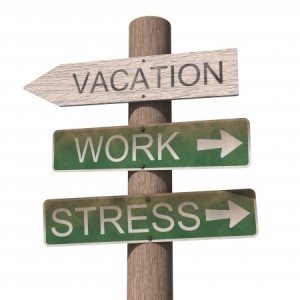Vacation time is a well-earned part of any employee’s compensation package, but one third of U.S. workers (33 percent) say they do not feel comfortable taking time off. That’s according to the Deloitte’s Workplace Pulse survey, which also found that nearly 32 percent say they’ve consistently placed work commitments over family/personal commitments and less than half (48 percent) say their employer as a whole values their life outside work.
The survey of more than 1,000 full-time employed adults also reinforces well-being as more than just a gender or generational issue. More men than women reported that in the past six months they consistently placed work commitments over family/personal commitments (35 percent vs. 27 percent). In addition, millennials are also struggling to balance work and well-being.
“These findings should serve as a wakeup call to organizations looking to retain and attract talent,” said Mike Preston, chief talent officer, Deloitte LLP.
Organizations are investing in more and more benefits and perks associated with well-being, like flexible work options and unlimited vacation days, aimed at winning the war for talent. But our survey shows businesses can do more to create a culture of well-being, which goes beyond offering generous programs and focuses on everyday behaviors. Well-being is not mutually exclusive to delivering value to clients, in fact it’s important in any high performance culture.
Modeling well-being critical, especially for millennial talent and men
The data also offers a way to address these issues and it starts with ensuring leaders at all levels model well-being. More than a third of respondents say if they saw their direct managers (39 percent) and senior leadership (38 percent) prioritizing personal commitments over work, they would feel more comfortable doing the same.
These results were amplified among millennial talent, who are quickly becoming the majority group in the workforce. This group was more likely to say if they saw their peers, managers, senior leadership, and CEO prioritizing a personal commitment over work, they would feel more comfortable doing the same. This is perhaps not surprising given they were also more likely to say in the last six months that they’ve consistently placed work commitments over family/personal commitments (36 percent vs. 27 percent of Gen Xer’s).
In addition to millennials, men are also looking for leaders to model well-being. More men than women strongly agree that they wished their CEO and company leaders were more open and honest about their experiences and challenges balancing work and life (20 percent vs. 13 percent). Despite the increased attention and the evolution of well-being from a women’s issue to a workplace issue, these results suggest that organizations still have a long way to go.
Peers have the biggest impact on workplace happiness
As the skill gap continues to widen and more and more people are looking for new career opportunities, issues that impact engagement like well-being become increasingly important. For the majority of workers, (59 percent) co-workers have the greatest impact on happiness in the workplace.
While peers had the greatest impact on workplace happiness, there were signs that CEOs and other leaders should become more visible. Only 16 percent of respondents say their CEO is very transparent on a professional level and only 10 percent say their CEO is very transparent on a personal level. In addition, while few employees (8 percent) say their CEO has a big impact on their happiness at work, almost half (44 percent) say that if they heard more about their CEO’s experience managing well-being, it would have a positive impact on their own feeling about their workplace.
“These results support our own well-being journey at Deloitte. In the past, Deloitte offered a range of wellness and work-life programs and benefits, but we were hearing from our people that we weren’t doing enough to address their individual needs,” said Jen Fisher, national managing director of Well-being, Deloitte LLP. “This is why we are taking a more holistic approach to well-being, focused on creating opportunities for our people to personalize their experiences and empowering teams to support each other in managing work and client demands.”
About the workplace pulse survey
Deloitte’s workplace pulse survey was conducted by KRC Research to understand how employees view work-life balance at their organization. The survey was conducted via an online poll of 1,016 full-time employed adults across generations, in the United States from October 6–12, 2015. Data shown in this topline has been weighted to reflect the demographic composition of the United States per the latest US Census.
Thanks for reading CPA Practice Advisor!
Subscribe Already registered? Log In
Need more information? Read the FAQs




